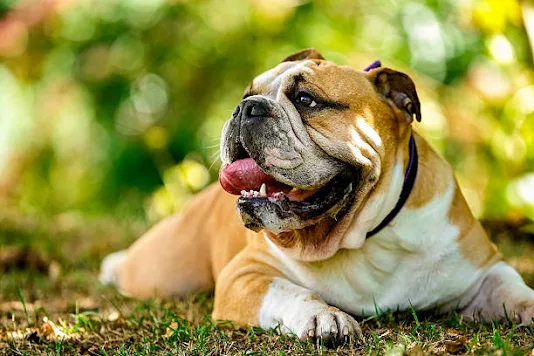Information About Bulldog Breeds That Will Amaze You
Bulldogs are a fascinating breed of dogs that have captured the hearts of many dog lovers around the world. Known for their distinctive appearance and gentle temperament, bulldogs have become popular pets and companions. In this article, we will explore some interesting and lesser-known facts about bulldog breeds that will surely amaze you. From their history and origins to their unique characteristics and care requirements, we will delve into the world of bulldogs and uncover the secrets behind their charm. So, let's embark on this journey and discover the captivating world of bulldog breeds.
History and Origins
The history of bulldogs dates back several centuries. Originally bred
for bull-baiting, a popular sport in medieval England, bulldogs were
known for their strength, tenacity, and ability to hold onto a bull's
nose. However, with the banning of bull-baiting in the 19th century,
bulldogs faced an uncertain future. Fortunately, dedicated breeders
stepped in to preserve the breed, and over time, bulldogs evolved into
the lovable and gentle companions we know today.
Types of Bulldog Breeds
While many people are familiar with the English Bulldog, there are actually several different types of bulldog breeds. Each breed has its own unique characteristics and traits. Some of the most popular bulldog breeds include:
English Bulldog: The English Bulldog is perhaps the most well-known bulldog breed. With its stocky build, wrinkled face, and distinctive underbite, the English Bulldog is a symbol of strength and resilience.
French Bulldog: The French Bulldog, also known as the Frenchie, is a small and compact breed with a playful and affectionate nature. They are known for their bat-like ears and expressive eyes.
-
American Bulldog: The American Bulldog is a powerful and athletic breed. They are known for their loyalty and protective nature, making them excellent family pets.
Olde English Bulldogge: The Olde English Bulldogge is a breed that closely resembles the original bulldogs of the 18th century. They are known for their athleticism and agility.
Victorian Bulldog: The Victorian Bulldog is a relatively new breed that was developed in the 1980s. They are a larger and more muscular version of the English Bulldog.
Unique Characteristics of Bulldogs
Bulldogs have several unique characteristics that set them apart from other dog breeds. Here are some of the most notable traits of bulldogs:
- Brachycephalic: Bulldogs have a short and pushed-in face, which is known
as brachycephalic. This feature gives them their distinctive appearance
but also makes them prone to certain health issues, such as breathing
difficulties and overheating.
- Friendly and Affectionate: Despite their intimidating appearance, bulldogs are known for their friendly and affectionate nature. They are often described as gentle giants and make excellent companions for individuals and families alike.
- Low Energy Level: Bulldogs are not known for their high energy levels. They are generally laid-back and enjoy a relaxed lifestyle. Regular exercise is still important to keep them healthy, but they are not as active as some other breeds.
- Good with Children: Bulldogs are typically great with children. They are
patient and tolerant, making them ideal family pets. However, as with
any dog, proper socialization and supervision are essential to ensure a
harmonious relationship between the dog and children.
Care and Maintenance
Taking care of a bulldog requires some special considerations due to their unique characteristics. Here are some tips for caring for your bulldog:
- Regular Exercise: While bulldogs may not be the most active breed, they still require regular exercise to maintain a healthy weight and prevent obesity. Daily walks and playtime are essential for their physical and mental well-being.
- Proper Diet: Bulldogs are prone to weight gain, so it's important to feed them a balanced and nutritious diet. Consult with your veterinarian to determine the best food and portion sizes for your bulldog.
- Grooming: Bulldogs have a short and dense coat that requires regular grooming. Brushing their coat once or twice a week helps to remove loose hair and keep their skin healthy. Additionally, regular cleaning of their facial folds is necessary to prevent infections.
- Health Monitoring: Due to their brachycephalic nature, bulldogs are more susceptible to certain health issues, such as respiratory problems and skin allergies. Regular veterinary check-ups and monitoring of their overall health are crucial to catch any potential issues early on.
- Training and Socialization: Bulldogs are intelligent dogs and benefit from early training and socialization. Positive reinforcement techniques work best with this breed, and early socialization helps them become well-rounded and confident dogs.
Frequently Asked Questions (FAQ)
Are bulldogs good with otherdogs?
Bulldogs can get along well with other dogs if they are properly socialized from a young age. It's important to introduce them to other dogs in a controlled and positive environment to ensure a harmonious relationship. However, some bulldogs may have a dominant nature, so supervision is necessary when introducing them to new dogs.
Do bulldogs require a lot of exercise?
Bulldogs have a low energy level compared to some other breeds. While they don't require intense exercise, they still need daily walks and playtime to stay healthy and prevent weight gain. It's important to find a balance between exercise and rest for bulldogs to avoid overexertion.
Are bulldogs good with children?
Yes, bulldogs are generally good with children. They are patient and tolerant, making them excellent family pets. However, as with any dog, it's important to teach children how to interact with dogs respectfully and supervise their interactions to ensure the safety of both the dog and the child.
Do bulldogs have any specific health issues?
Bulldogs are prone to certain health issues due to their brachycephalic nature. Some common health problems include breathing difficulties, overheating, skin allergies, and eye problems. Regular veterinary check-ups and proper care can help prevent and manage these health issues.
Can bulldogs live in apartments?
Yes, bulldogs can adapt well to apartment living. They are not overly active and are generally content with a relaxed lifestyle. However, it's important to provide them with regular exercise and mental stimulation to prevent boredom and promote their overall well-being.
Conclusion
Bulldogs are truly remarkable and unique breeds of dogs. From their rich
history to their distinctive characteristics, they continue to
captivate dog lovers around the world. Whether you are considering
adding a bulldog to your family or simply want to learn more about these
fascinating breeds, this article has provided you with valuable
information. Remember to provide them with the love, care, and attention
they deserve, and they will reward you with unwavering loyalty and
companionship. So, embrace the charm of bulldogs and let them amaze you
with their incredible personalities.
Key Takeaways:
Bulldogs have a rich history and were originally bred for bull-baiting.
There are several types of bulldog breeds, including the English Bulldog, French Bulldog, American Bulldog, Olde English Bulldogge, and Victorian Bulldog.
Bulldogs have unique characteristics such as being brachycephalic, friendly and affectionate, and having a low energy level.
Proper care and maintenance, including regular exercise, a balanced diet, grooming, and health monitoring, are essential for bulldogs.
Bulldogs can get along well with other dogs and are generally good with children when properly socialized.
Bulldogs are prone to certain health issues due to their brachycephalic nature, and regular veterinary check-ups are important.
Bulldogs can adapt well to apartment living but still require regular exercise and mental stimulation.
Remember, if you're looking for a loyal and loving companion, bulldogs are a breed that will surely amaze you with their unique qualities and charm.







